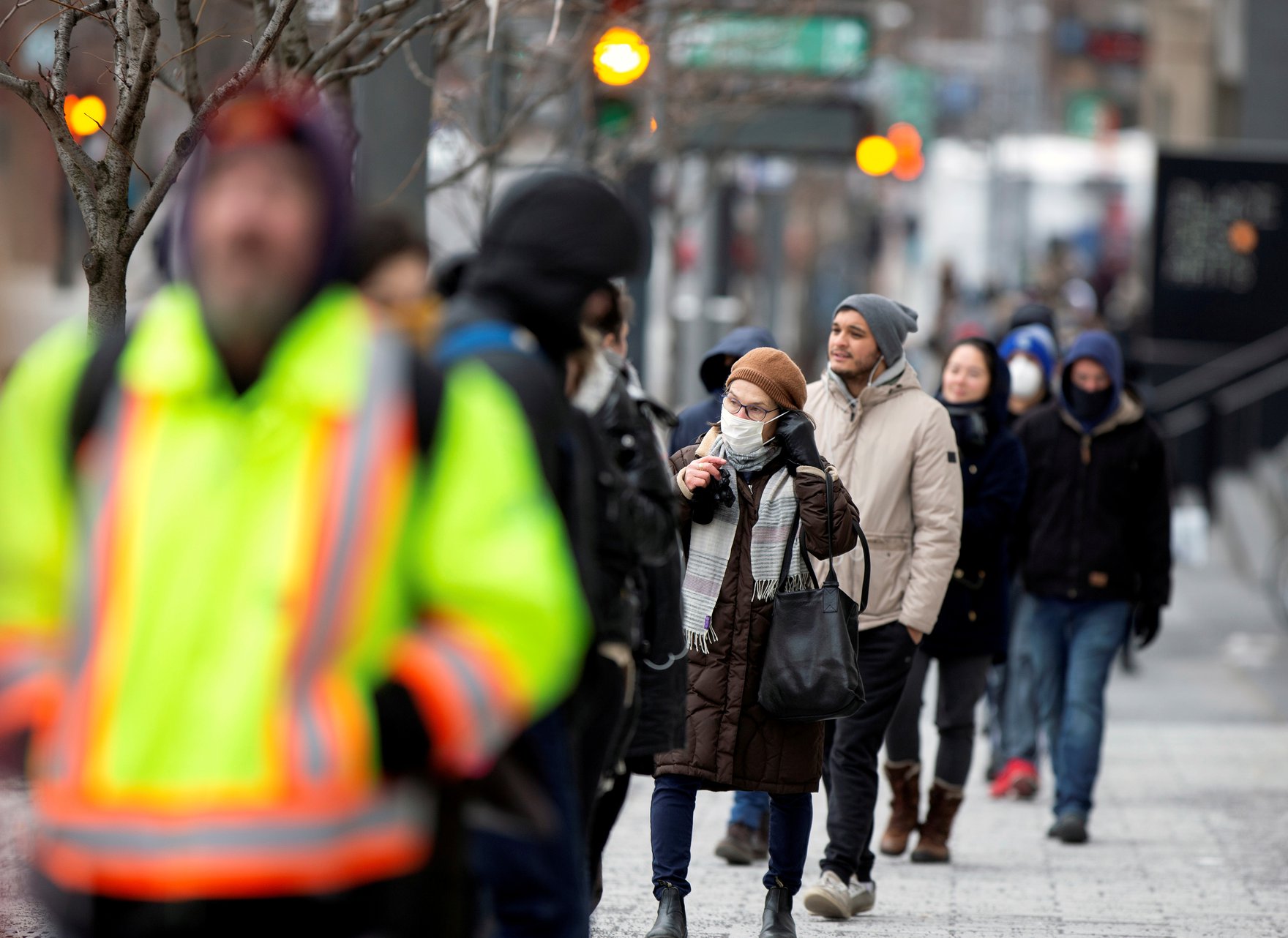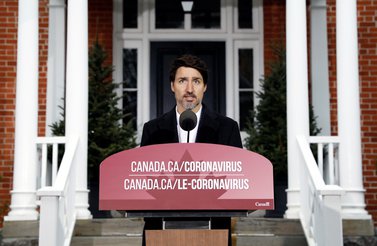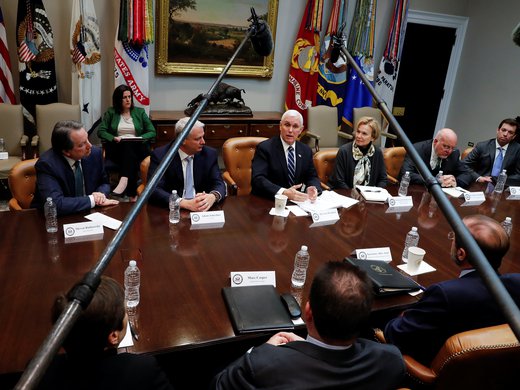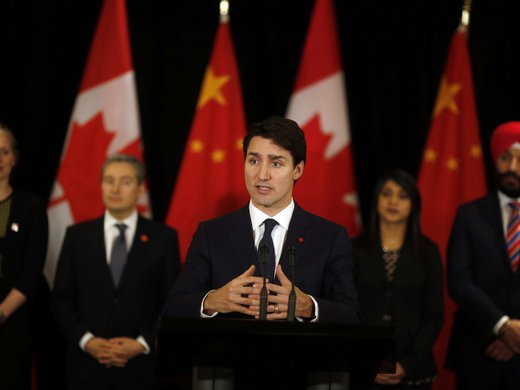As the COVID-19 pandemic pushes the limits of the Canadian health-care system, innovation is essential. Any solution will involve new, improved or adapted technologies — vaccines, pharmaceuticals, ventilators and related equipment, tests to detect the coronavirus, or even processes for making hand sanitizer.
Many solutions are (or soon could be) patented. But who will own, control and have access to those solutions, and when? This question of control is especially critical if intellectual property rights are owned by foreign entities and international supply chains for essential goods are threatened.
In normal times, patent owners would have the exclusive right to make, use and sell their patented inventions for 20 years. These are not, however, normal times.
That is why Canada was right to adapt its Patent Act as part of its emergency response to the pandemic. Being proactive about patents, rather than waiting to negotiate with individual owners, will save lives in Canada by making solutions accessible quickly, cheaply and universally. Canada has set an example that the world should follow.
Yet, if innovators are also proactive, as many have been, it will be unnecessary for Canada or other countries to invoke this new power.
If bad actors profiteering from intellectual property or rogue countries obstructing international trade do threaten the response to the public health emergency, Canada’s COVID-19 Emergency Response Act (Bill C-13) allows for compulsory patent licensing to the extent necessary.
The government can use a one-year licence to make vaccines, drugs or other technologies itself, or can authorize anyone else to do so. A patent owner must still be paid adequate remuneration that takes into account the economic value of the authorization, but they cannot negotiate or refuse to deal.
There is a sunset clause. The power lasts until September 30, 2020. If patented solutions to the COVID-19 pandemic are still needed after that deadline, the government would have to use pre-existing powers. Applying those would require due process, including fuller negotiation and proving an abuse of patent rights, such as failing to meet demand on reasonable terms.
In these circumstances, Canada’s change to the Patent Act is commendable, for two reasons.
First, this action reassures the Canadian public that when solutions become available, patents will not impede a rapid response to this public health crisis. It sends a clear signal that the government takes access to solutions seriously.
Second, it encourages innovators to be proactive, avoiding the risk that the government may resort to extreme measures. Simply put, the threat of compulsory licensing is an incentive for patent owners to act reasonably.
The idea of limiting patent protection in times of crisis is not new. At the height of the HIV/AIDS crisis, South Africa’s plans to use compulsory licensing to ensure access to medicines raised awareness of the issue. Public outcry led to the World Trade Organization’s 2001 Doha Declaration on intellectual property rights and public health, and to corresponding changes in international patent law. Soon after, Canada began promoting access to medicines through the 2004 Jean Chrétien Pledge to Africa Act.
The Israeli government recently approved a licence to make generic copies of a patented HIV drug of potential use in treating COVID-19 (AbbVie’s antiretroviral drug Kaletra), even though the treatment itself has not been approved. Chile and Ecuador have taken steps to address patent-related aspects of the coronavirus crisis, and Germany is reportedly considering similar measures. Costa Rica sent an official request to the World Health Organization to pool patent rights to technologies that are useful to fight the pandemic.
Compulsory licensing was discussed in the United States, and actually used in Canada, when North Americans needed access to Bayer’s patented antibiotic Cipro to deal with the threat of anthrax in 2001. And, during the 2005 outbreak of the avian flu virus, compulsory licensing was used in Taiwan and recommended in Canada to access Roche’s Tamiflu.
The scale of the current COVID-19 pandemic, and its impacts on public health and the global economy, make immediate access to technologies more urgent than ever before.
So far, almost everyone understands that now is not the time for aggressive posturing around intellectual property. The Gates Foundation reports that “15 companies have agreed to share their proprietary libraries of molecular compounds that already have some degree of safety and activity data with the COVID-19 Therapeutics Accelerator,” its joint initiative with Wellcome and Mastercard to speed development and access to therapies for COVID-19.
One major biopharmaceutical company, Gilead, withdrew its request for special treatment of remdesivir, which would have given the company a longer period of exclusive rights to the potential coronavirus treatment. It has since said it “will work to ensure affordability and access so that remdesivir is available to patients with the greatest need.”
After its experience with Israel, AbbVie went further by positively stating it will take all steps necessary to remove any potential barriers to alternate sources of supply of its HIV drug, including dedicating to the public its intellectual property.
A team at the Massachusetts Institute of Technology has invented and released open-source specifications for an emergency ventilator that can be built for about $100.
Indeed, any innovator can sign onto the “Open COVID Pledge” to use intellectual property for the public good. The intention of scientists and lawyers behind the pledge is not to build businesses off of other peoples’ patents, but to respond to this specific emergency.
Similarly, Canada’s changes to patent law are not intended to undermine the importance of private investments in solutions to this crisis. That is why Canada has a plan to mobilize industry to fight COVID-19. Companies will need to mobilize all of their technologies, data, know-how and networks to rapidly scale up the production and distribution of solutions to potentially billions of people.
And if the private sector can effectively capitalize on this unprecedented opportunity, the rapid, global collaboration we are seeing now could help us to rethink the roles of open and proprietary science and redesign the way drug development happens for situations like this in the future.
Meanwhile, these are exceptional circumstances that may require the use of exceptional powers, including compulsory licensing.





